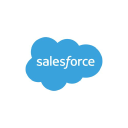On Starting A Leading SaaS-Based Event Marketing Automation Company
My name is Joe Davy. I am the founder and CEO of Banzai, the leading SaaS-based event marketing automation company. Our software helps companies host and promote delightful webinars and in-person events. We have about 3,000 customers who range from small businesses to Fortune 100 companies and even a few unicorns.
We launched Banzai in 2016. When the pandemic hit in 2020, our sales pipeline went to zero in a week. We took some risks and worked hard. Our team refocused 100% on virtual events and webinars. In the last year, we doubled in size, acquired two companies, and we landed $15 million in new funding.

What's your backstory and how did you get into entrepreneurship?
I was raised in a small university town in North Carolina. Both of my parents were English professors. I used to interrupt my dad’s class to get candy money after school. The university was very...













